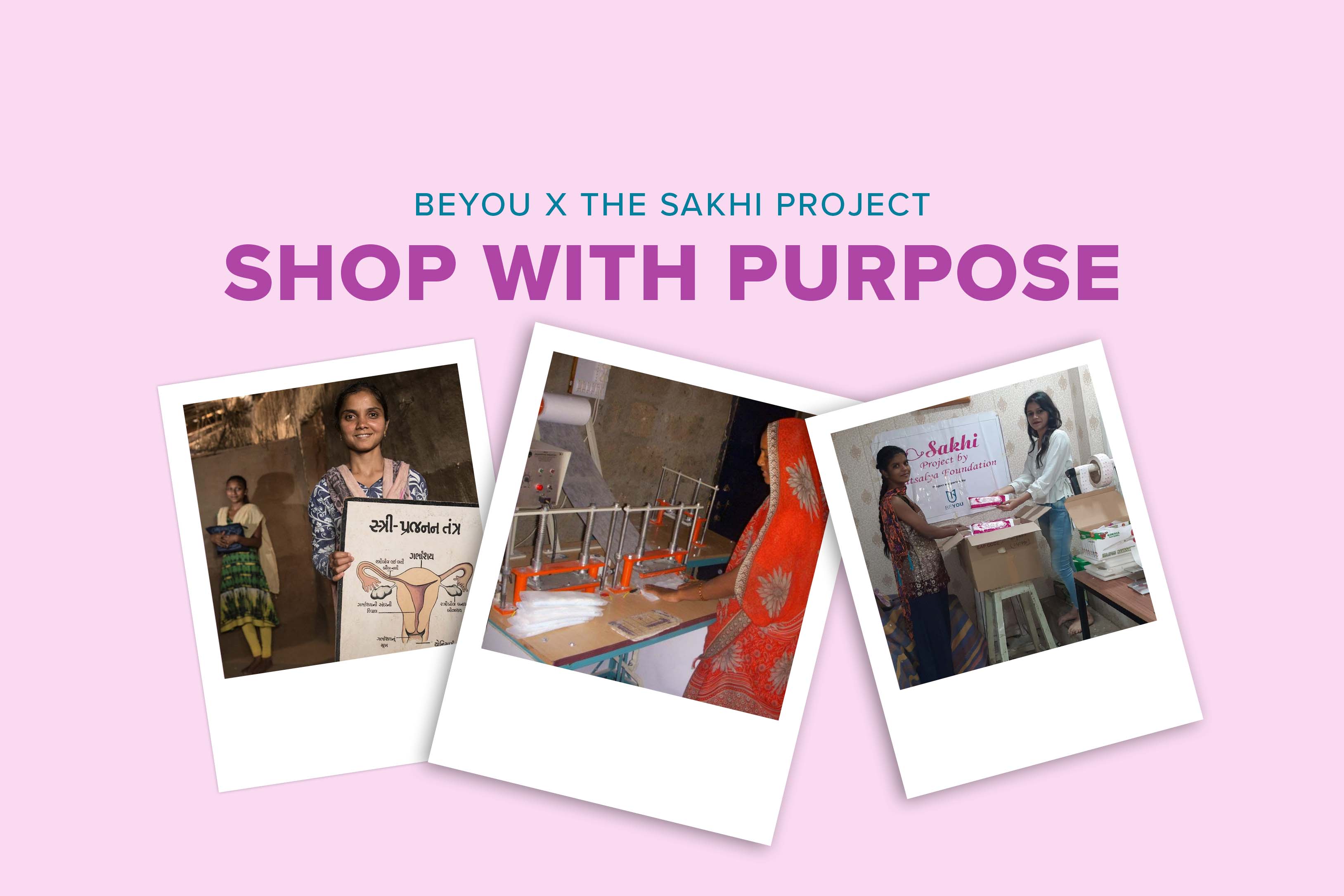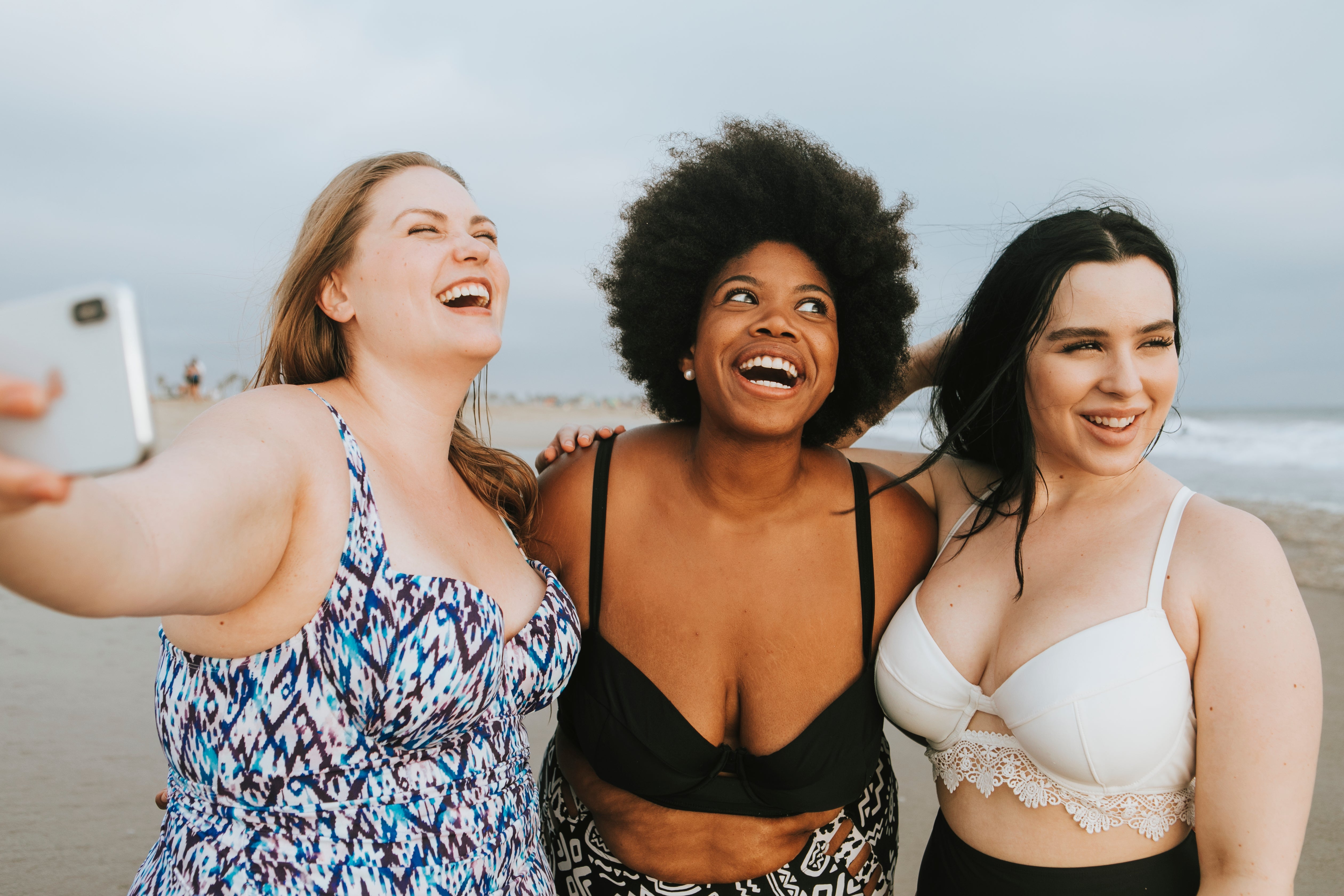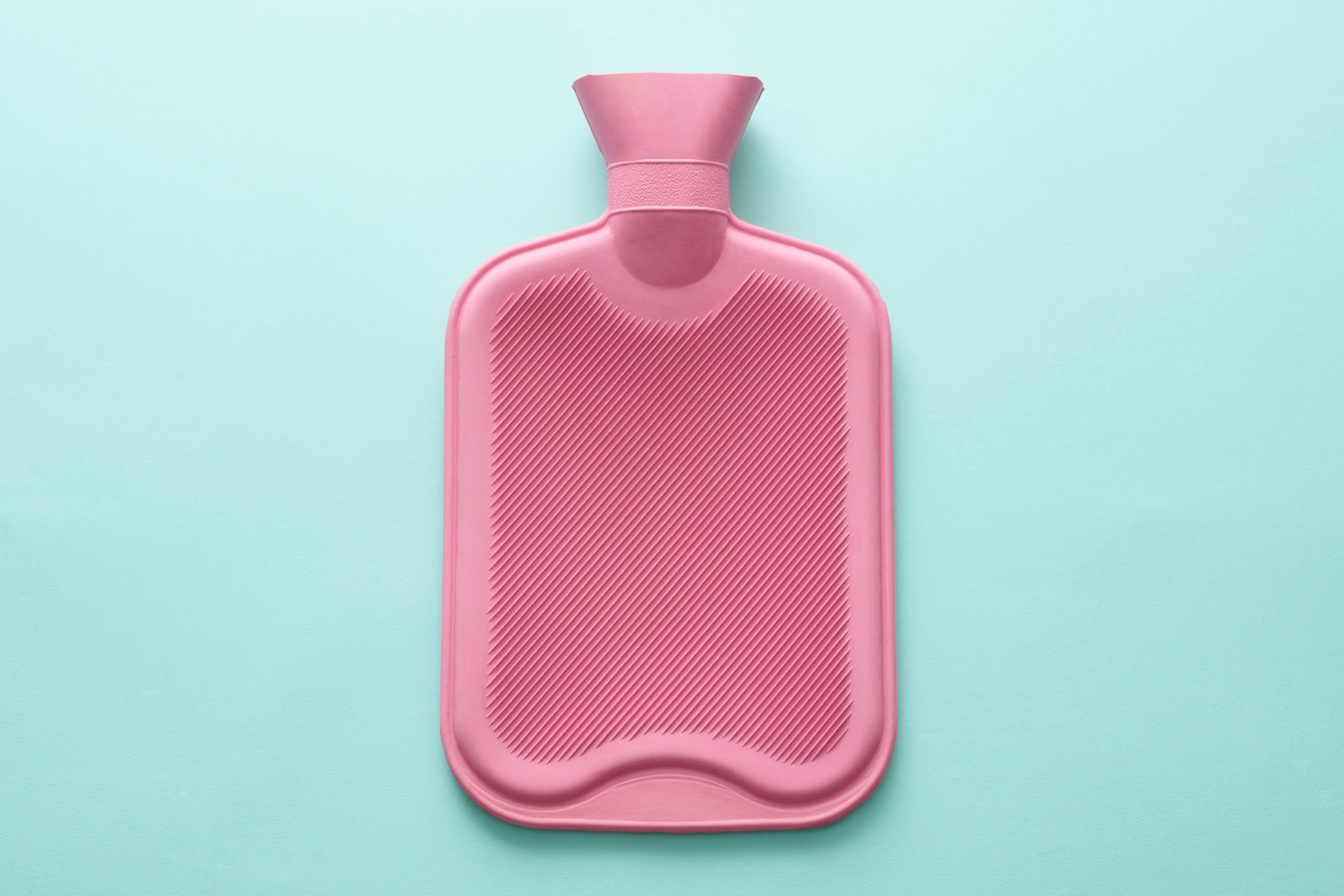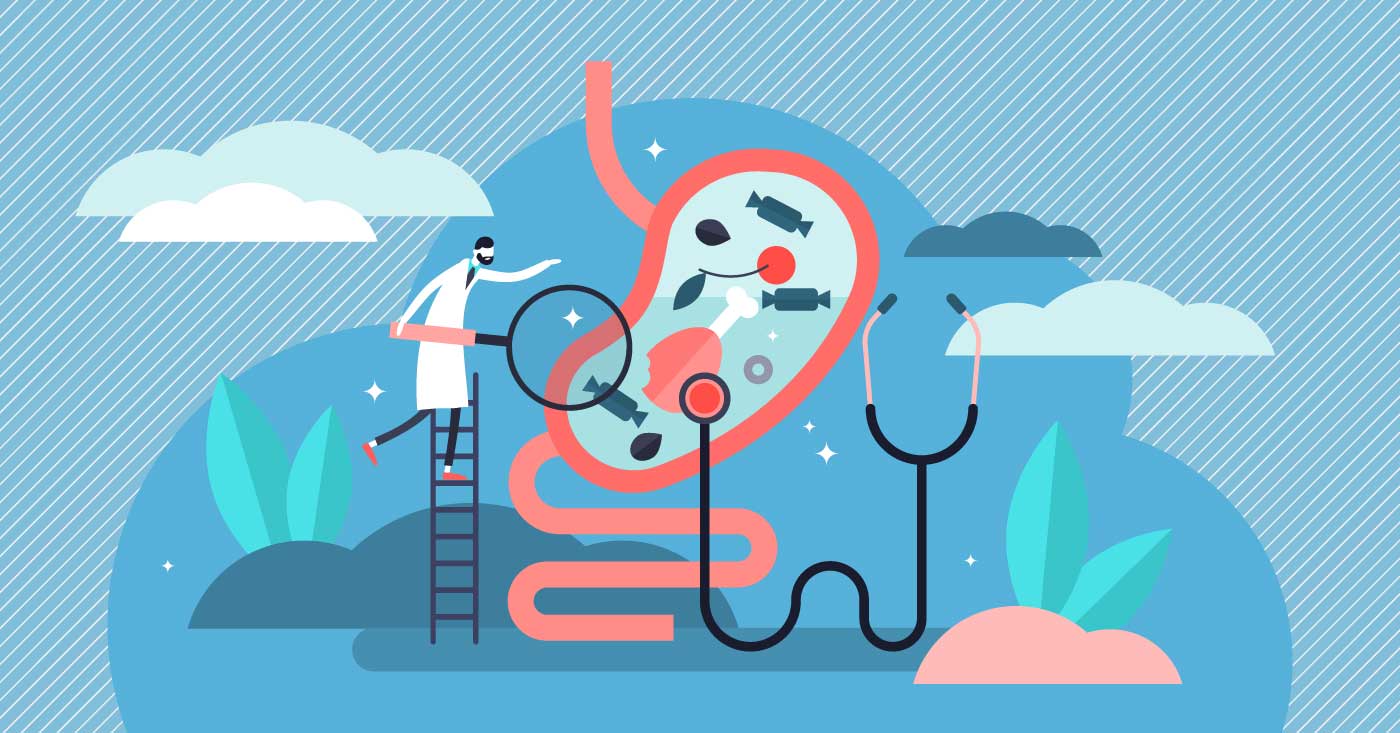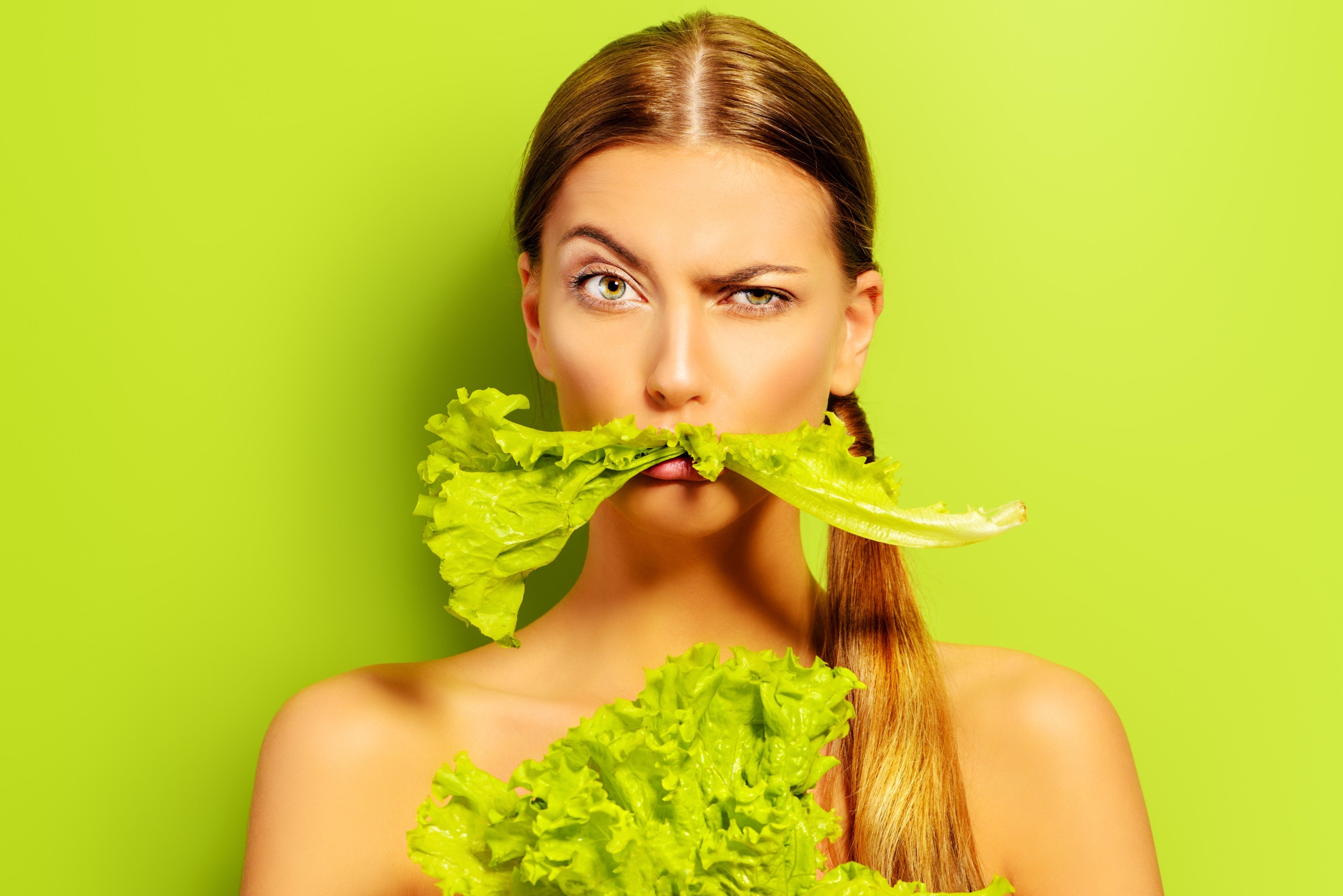Podcast Diaries: The Flow Down Episode 7
Apr. 01, 2020 By BeYou
Why we love it:
We believe everyone deserves the right to the period care they need. Unfortunately, many women don't have access to basic sanitary items to keep them safe and healthy during their period. We think that this needs to change and Nadya Okamoto does so too. In this episode of The Flow Down, Jess and Stephanie sit down with activist and author of Period Power: A Manifesto for the Menstrual Movement and founder of PERIOD to talk about all things to do with the Menstrual Movement and how we can make period products accessible to all.
We're sure you'll love this episode just as much as we do so make sure to give it a lesson below and subscribe to The Flow Down on your favourite podcast app.
Listen & Learn:
The Transcript:
(music).
Welcome to the Flow Down, a podcast all about periods. I'm Jess, a journalist.
I'm Steph, a women's health coach and on today's show, period activism.
Hey Steph.
Hey Jess.
Oh, I got to say I'm feeling pretty jazzed about sharing today's interview.
Me too. It was amazing getting to speak with Nadya Okamoto. Nadya is a Harvard student, she's the co-founder of a nonprofit, and she's making incredible strides in the fight for menstrual equality.
Yep. Nadya co-founded the organisation PERIOD as a high school student in 2014 when she was 16 years old. She founded it after realising that menstrual products are not reliably available to many people who need them, such as people who are homeless, and the organisation aims to respond to that need by delivering products and what they call period packs to menstruators.
And even beyond distributing products, PERIOD has become an organisation that's getting down to the root cause of menstrual inequity and changing the conversation around menstruation in many different ways and across different avenues. The organisation serves as an umbrella for a big network of chapters around the country and around the world, everywhere from Wisconsin to Switzerland to Uganda, in high schools, universities, and in communities.
Nadya is always on the move. She travels the globe speaking about periods and about her organisation. She's done Ted talks. She even ran for city council in Cambridge.
She also just published a book. It's called Period Power: A Manifesto for the Menstrual Movement, and she wrote it during her winter break last year.
Basically Nadya is a superhero. She saw a need and decided that nothing was going to stop her. And in a short time she's really grown this movement in ways that kind of boggled our minds. For us, Nadya is really what gen Z is all about: super connected both digitally and offline. She truly values diversity and social justice and she really lives those values. She believes in teamwork and working together for the collective good. PERIOD, her organisation is truly making a difference, it's incredible.
Yeah. I have to say gen Z gives me hope for our future. They're young and so resilient and so aware and so big hearted, and really committed to standing up for one another and making this world a better place. Gen Z, you are really special. Thank you.
So let's go ahead and play the interview, shall we Steph, so our listeners can really hear for themselves.
Let's do it. Jess.
Welcome to the Flow Down, Nadya.
Hi, thanks for having me.
Thank you.
Thanks for joining us. So we thought it'd be fun, Nadya, to kick off by asking you to take us back to the day it came, your first period. Can you tell us the story of your first period?
Yeah, so I got my first period when I was 12 years old, on December 26, 2010. And I remember because for about a decade, my sisters and I had the tradition of flying from Portland to New York to visit my dad from my mom's house the day after Christmas every year. And it was sort of, as a kid of divorced parents, it's a time where there's a lot of anxiety about switching homes and needing to pack the right clothes. And it's me and two sisters and one dad. And so things in growing up and hitting puberty with that could get awkward sometimes. So there's a lot of anxiety around it.
And I remember my family was running around, getting ready to leave the house and right before we left I went to the bathroom and looked down and got my period. And as the young drama queen that I was and am, just completely thought that I was bleeding from the inside out and on the verge of a young death. So immediately took off my underwear and I was running around the house crying and telling my sisters that I love them and everything. And I think I was just very confused about what was happening, and my mom just took one look at my underwear and started laughing and chanting, "You're a woman, you're a woman." And I got my first period.
Aww. So a lot has happened since then-
Since then, yes.
... including the way that you understand periods and talk about them. Can you tell us about your beginnings in menstrual activism? When was the first time that you remember realising the inequities around how different people experience their periods in our society?
It came into my view when I was 15 years old, when I was a sophomore in high school in Portland, Oregon. And between my freshman and sophomore year, my family experienced living without a home of our own. And during that time my commute to school turned from about 12 minutes to over two hours long on public transportation. And where I would change buses was in an area of Portland, Oregon, called Old Town. And there were 10 homeless shelters in a two block radius. And it was during my bus transitions where I would sit at the bus stop, and public transportation in Portland is notorious for not always being on time. So I spent a lot of time at this bus stop, and I would just get into conversations with these homeless women I would see every day on my way to school, and would get into conversations with them about anything from what was going on in their life, how they got into this current living situation, what services they were using.
And then I would start asking them, what's the most challenging thing about their living situation? And it was through asking that question that I sort of accidentally discovered this unaddressed natural need of menstrual health, right? And I would hear their stories of using toilet paper, socks, brown paper grocery bags, cardboard, cotton balls to take care of their period. And it just struck me as a wake up call on my own privilege of realizing, even in this time when my family was quote/unquote legally homeless and I had to mark no permanent address on school forms and felt quite helpless in my own family situation, how privileged I was because I never had to worry about using literal trash to take care of my own period.
Yeah. So then shortly thereafter you decided to take it a step further to respond to this need that you had discovered. How did you decide to take these seeds of interest and activism and awareness, and actually create a nonprofit?
On a personal note, I was coming out of a pretty rough situation because of a relationship that I was in that I think left me oftentimes feeling quite voiceless. And I think on a personal note, I was very desperate to feel some sort of, my voice matters, I can make a difference in my community. And to be honest, I just knew nonprofit was a key word for doing something good. My mom had been working in nonprofits years prior and I think that for me, I just grew up knowing that if I said nonprofit, it meant doing something good for my community. So I remember just going to my mom and saying, "Mom, I'm going to start a nonprofit." And her reaction was like, "Okay, don't do that", and made me think of all the things that would make it hard. You need to do finances and logistics. And I just made a list of all the reasons she thought I couldn't and identified a co-founder in a male classmate of mine named Vincent Forand and recruited him to come on board so we could cover the basis of skills needed.
And we just sort of jumped into starting a nonprofit. But like from the beginning didn't know what we were doing. We were Googling questions like, what is a nonprofit? What is the board of directors? What is a 501(c)(3)? What is the IRS? And just sort of putting together a list of all the things we needed to learn and just Google the answers to them. And we slowly started just doing what we could in our own area and through the magic of social media, started recruiting more people into what we were doing globally.
So your activism since then has exploded. For whatever it's worth, we were Googling the Menstrual Movement and your name comes up, you are at the forefront of what is now known as the Menstrual Movement. For those listening who aren't even familiar with menstrual activism, with these conversations, can you explain in a few lines what the Menstrual Movement is?
Yeah, so I define the menstrual movement as the fight for equitable access to menstrual hygiene and changing the way people think and talk about periods. And the menstrual movement is actually a term that I first said during my first Ted talk on a big stage. I think that the reason I wanted to call my Ted talk The Menstrual Movement is because in my first year it was... I gave my Ted talk like a year into my work and for the first year I just kept coming across different people doing this sort of work and also needing to convince people that the time to do this is now. And this is necessary to achieve gender equality globally.
And I think that there was a part of me that was just like, I needed to tell the world like this is not just me as a young teenager wanting to do something and build my resume, but I'm fully invested in this because this is a small and integral part of the overall movement to fighting for gender equality, right. And I think that the reason I wanted to say the Menstrual Movement is because I think that the word movement inherently implies like this is something that's not for short game, but this is a longterm game we're playing in terms of systemic change and social change, and wanting to recruit people into what we're doing. And in that sense, I think the Menstrual Movement was a perfect name for what we were doing.
And PERIOD has become such a leader in the movement.
Actually we're celebrating because we just passed our four year mark. I started the organisation when I was 16 on December 1st, 2014, with my co-founder Vincent Forand, who is now our Operations Director-
Congratulations.
Yeah, congratulations.
Thank you. But we're celebrating that in our four years we've addressed over 400,000 periods for people in need and we registered over 230 campus chapters at universities and high schools around the US and abroad.
Wow.
Pretty incredible.
(music)
So as you outline in your book, there seem to be three main parts to the Menstrual Movement: there's conversation and breaking the stigma, access to products for all menstruators, and policy change. Nadya, can you tell us more about each of these pillars? So starting with conversations, what are your goals related to breaking the stigma?
Yeah, so all the three pillars actually stem from PERIOD's organisational structure. Because when we started the organisation, we were purely on service, right, the short term solution of providing period products to people in need. But as we continued on and we were analyzing what people need most and what makes the most long term change, it was really policy. It comes down to making the long term change of getting these services written into policy. But then also to change policy, we first need to change culture. Because we need to be able to get constituents to vote for these things and support them, while also getting legislators to realise that this is something constituents care about and that they have a responsibility to represent, right? So systemic change and social change kind of came hand in hand. And then service is sort of the short term solution to providing access to period products while we're fighting for policy.
So speaking to this idea of changing culture and changing the conversation around menstruation, what's your vision? What goals are you working towards?
So I would say that my vision in terms of changing culture around periods is to honestly not drastically change it, but just say periods are natural and we normalise the conversation around it. I think that so much of what causes an unhealthy stigma is saying, "This is something that we hide. This is something people should feel ashamed about. This is something that we only talk about in private." And I think that my vision would just say no, this is something that's part of human life, that makes human life possible. And it's a natural part of human life, right, and let's talk about it for what it is.
Cool. So can you give us some insight into what it looks like at your organisation when someone is on their period? Because I feel like a lot of times it's easy for us to feel on board with the idea of talking about our periods but then really hard to actually implement it.
Yeah, I think PERIOD is the pinnacle of what it looks like to be in a place where periods are very normalised and the topic is... the word period comes up in almost maybe every other sentence. From calling our period chapters to PERIOD the organisation to PERIOD board to PERIOD staff. But I think that it's very normal for someone to walk in the door at the beginning of a workday and say, "Oh, I just got my period", or, "I'm on my period." Or people saying, "Oh, I just tried a new period product." And I think that we're very open about our own period experiences and exploring what that could be like. To me and to be completely transparent, I'm coming off of my period with an IUD and that experience of what that change feels like. I think that we always have to tell our volunteers or our reps that so much of what we do is leading by example. So we can't tell people to normalise periods without first showing them what that looks like.
Definitely. So the second point we'd love to hear you speak to is helping all menstruators have access to period products. You say that menstrual hygiene is a right, not a privilege so what are your goals there?
So, our goal is simply that. When we talk about menstrual equity, equitable access to menstrual health, it comes down to the fact that some people can afford period products, some people can't. And our work is focusing on making that access equitable. Which is why when we say who we're serving, we start with people who cannot otherwise afford period products. And the other thing about inclusivity that you are sort of hinting at was we very much put gender inclusivity at the forefront of how we approach our activism. Saying that not all women menstruate and not all menstruators are women. So people who are too young or older and past menopause don't get their periods, or who are on birth control. At the same time, people who were assigned female at birth but might identify as transgender men or non-binary or transgender or gender fluid, like don't identify as women but also get their period. And we're inclusive of that.
Cool.
Love that.
Okay. And then just briefly, so the third pillar is the policy change, which you talk about as being what has the potential to be really enduring. Can you give us an overview of some of the broad goals? I think a lot of people might have heard about the tampon tax. Is the tampon tax one of the main policy arenas that you work in? Are there other areas of policy? What are your priorities?
Yeah, so the tampon tax is sort of like the big national one that everyone's talking about, but actually the one that PERIOD is taking the most action on is the legislation that's happening at the campus and local level. So what we're doing with our chapters, we're actually running a national campaign with a new company called Thinx, which is the period underwear company, called United For Access. And what we're doing with that is we've nationally recruited chapters to do work on their campus and with their local government, with city councils and school boards, to pass legislation and policy that says period products are going to be provided in all school restrooms. So our first goal is end period poverty for young people, end period poverty in schools.
So the idea that if you were to walk in a school restroom or workplace restroom and you didn't see toilet paper, you would be kind of mad. You'd be like, "What is this?" So we say that periods are just as natural and should be treated as just like that. So wherever you see toilet paper, we should also see period products. So an example of what our chapters are doing is we've worked with Action Network Petitions. So we've one national petition that's calling on the Department of Education to say that period products should universally be provided in school restrooms. And it's a matter of gender equality in schools because there's studies that exist that one in five girls have missed school or missed classes because of lack of access to period products. We're also saying that period related pain is the leading cause of absenteeism for girls in the US. But also saying that this should just be a statement that periods shouldn't hold anyone back from achieving their full potential academic basis.
And then at the same time working on city councils and school boards to get period products in school restrooms as well, mandated by school districts. So actually one of our chapters was really successful with that in the last few months. Our grant high school chapter in Portland, Oregon, two girls named Abby and Chloe, their chapters worked on this for a number of years and just got Portland public schools to make a $25,000 a year investment in period products in all high schools and Portland public schools and that's a huge win.
So cool.
Wow. When we think about whether it's local government school boards to a more federal level, I know that men and male legislators can be proponents of period positive policies. But can you talk a little bit to what we've just seen in the midterms, more women being elected to office. Does this in any way overlay with your work? Does this give you hope? Does this signal something that has the potential to also impact the Menstrual Movement?
Absolutely. So here's one example. So I just talked about campus and local policy. The state level policy that we're fighting for is to repeal the tampon tax, which still exists in the majority of US states. Which is an archaic tax law that says period products, like tampons and pads, are also affected by the sales tax and it labels them as non essential goods. That's why it's called the luxury tax on tampons. Meanwhile, products like Rogaine and Viagra are considered more essential goods and don't have that sales tax. So that's a clear example of period products being considered more of a luxury than old man hair growth and erectile dysfunction medication. So I think that's a clear example of that would not happen if women who had got their period were in the room. And when you look at why the sales tax continues to be turned down in states like California, the reason the sales tax in California on tampons and pads is not being taken down right now is because the alternative is to increase the tax on alcohol.
And I think inherently we are continuing to lose that fight multiple times in the last couple of years because that's not considered a necessity as much as it should be. And when you look at the legislators who are in the room making that decision, it's majority men. When we look at who's making the decisions, even with the 2018 wins for women in office, we still see a congressional group of legislators who is still less than 25% are women. That's why, even when we look at federal legislation, like period products being covered by the government for snaps and food stamps programmes, we need those products to be considered as necessities and they're not currently because the majority of people in the room are not people who get their period and understand that experience.
So over Thanksgiving I was with my mom and she saw that I was reading Period Power. And so we got to talking about the book and she's in her 60s. She was just floored that there are so many bright young people speaking so openly about menstruation right now. Why do you think that gen Z is able to be more open about periods?
Of course. So this is my favourite thing to talk about. First and foremost, I would say the reason I'm so passionate about gen Z being a force of change is that we're the largest segment of a population in the history of the world. Currently, gen Z is 26% of the global population, we're 46% of the total media audience, and we're complete digital natives. So we grew up on social media, we know it's second nature to us. And right now the average age for someone getting their first smartphone is 10 years old, which is a big change even from millennials. And so I think that the reason why gen Z cares so much about issues, and of course you can't make generalisations about overall populations, but I would say you can make a safe bet around why gen Z is sort of known as the change-making generation is because we have seen people who are a little bit older than us, like millennials and gen Y asking for a seat at the table and that knocked getting us what we need.
We're still demanding change for basic things like rights to human lives because we don't have strict restrictions on gun laws. Or still demanding change for women to be treated equally in the workplace and be paid for equal work. We're still demanding change for being able to achieve and be ready for our full potential regardless of a natural need, like periods. And so I think that gen Z is not coming at this being like, "We want a seat at the table", because we've seen that rhetoric being spewed time and time again all growing up. So by the time we get to teenage, early 20 years, we're not asking just for a seat at the table, but we're asking to change the game and flip the table.
So I think that's very critical. And for example, one of the reasons that I accidentally found myself running for public office when I was 19 and a freshman at Harvard was on that vibe of, I don't just want to be at city council meetings, because no one is listening to me. So I'm going to run myself, because what's stopping me? And if you guys aren't going to listen to me we're going to do this ourselves. And so I think that that's why you see a lot of the rhetoric around gen Z change-makers is it's about time we do this.
Totally. Yeah, awesome.
I clearly get very fired up about this.
I love it.
I always feel like when I started talking about gen Z and periods, I forget to breathe while I'm talking. I can feel it like I'm touching my nose because my face will start tingling because it's literally just losing air in my face. But it always happens when someone asks me a question about why gen Z matters and I just really get into it and then I have to remind myself to keep breathing.
That's amazing. That's passion right there.
I love it, yeah.
So, some people might want to get involved in the Menstrual Movement, but they might think, well hey, there are other important issues that we need to fight for. Or maybe there are issues that are more important, like hunger or economic development. So what would you say to those people? What would you say to people that are sort of curious about maybe getting involved but don't for sure know why they should?
Yeah. So this is something I hear every single day. I constantly hear this, why does this matter? There are so many other pressing issues, or especially legislators will be like, "This is just not a priority of ours." When someone says that to me I'm like, "Okay, well then what are your real issues? Name, right." Breaking the cycle of poverty, talking about hunger and access to economic mobility, or just fighting for global development or fighting for climate change. All of those issues I can relate to periods, because when we talk about breaking the cycle of poverty and empowering communities, in any way, and all of that relates to hunger or job mobility or anything like that. The only way we're going to ensure that 100% of our population, not 50 but 100% of our population is ready to discover and reach their full potential regardless of a national need is by addressing periods.
Currently, over 51% of our population experiences menstruation on a monthly basis for an average of 40 years. And if that majority of the population takes 25% of their month every month to be shamed for being on their period or not having access to their periods, we will not be doing what we need to do to fight those issues of hunger and breaking the cycle of poverty. We know that the fastest-growing population within people who are experiencing poverty and hunger are women and children. And it is hard to deny that not addressing periods is related to that. And same thing with climate change. When we talk about climate change, one of the things of trash that's going out in the world is the disposable period products. And the average person uses 17,000 tampons and pads in their life, each one for the most part taking five to eight centuries to decompose.
So there's a lot of work to be done on all fronts. And so I think that's what we always say of, no matter what you come at me with in terms of why we should delay talking about periods, my answer is always, "No, we need to talk about periods because the crazy thing about it is that there's actually tangible ways to fight for the menstrual movement." No one really knows how to solve hunger. We know how to solve the menstrual movement.
Awesome. You use the term period warrior in your book. How do you define a period warrior?
So I know it's kind of cheesy, that term, but I think for me it was really coming at it from the idea of, I would look around our chapters and be like, "You guys are all so inspiring. And if this is a movement and we're fighting for something real, we're warriors in a sense." And that's where period warriors came from. Another part of it was, whenever I would talk to journalists or something like that, or I would talk to brand partners or other organizations, they would say, "There are a lot of other nonprofits doing period work." You can type in period organisation, you guys know obviously, there's hundreds of them. But what is it that sets PERIOD apart?
And it really comes down to, and it wasn't me who said this word, it was actually a lot of other people who are recognising it for me, but PERIOD has sort of built this army of young people who can't stop talking about periods. And I think that was where it really came down to, what is it a term that I can use to unite us in this fight together? And that's where period warriors came from.
Love that. So fighting for period equity, regardless of whether you're female, male-
Or anything in between.
Yeah. Talk to us about men being part of this conversation.
Yes. So my co-founder's a guy-
Yeah, we love that.
Yeah. And we almost have a board that's 50/50 male to female. A big part of what we do is saying that we will not achieve the goals of the Menstrual Movement without men working as allies and partners in this with us, because unfortunately we still live in a world where the majority of positions of power are held by men. And for example, even in US Congress, if that 80% of men are uncomfortable to talk about periods, we will not achieve what we're trying to achieve. At the same time, we tell men, "Whether or not you're comfortable talking about periods, you know someone, you love someone or you come from someone because periods exist." So I think that a big part of what we do is saying, "You exist because menstruation matters. And you need to be in this fight because this is a matter of equality. If you call yourself someone who believes in gender equality and men and women being equal, you inherently have to be a period warrior."
So before we let you go, we wanted to ask a personal question. We're big on having healthy go-to treats here at the Flow Down, which usually have to do something with chocolate. What's your favourite treat during your period?
Oh wait, this is a hard one. Healthy, ice cream! I love cold things. When I'm on my period or when I get cramps, for some reason my craving for ice cream always goes up when I'm on my period. And when I got my IUD in and I started losing my period, because I love getting my period, I'm very unusual in that way, It was kind of a sad experience and so I ate even more ice cream.
How can people get involved and find you and join the movement?
Yeah, so people can get involved with PERIOD just by visiting period.org, and they can start a chapter or get in touch with us about hosting a packing party or supporting what we're doing. You can find my book wherever books are sold. It's called Period Power: A Manifesto for the Menstrual Movement.
Nadya, thank you so much for being here with us today and really for just putting your heart and soul into fighting for menstrual rights. We appreciate you.
Thank you, Nadya.
Thank you so much.
Hope you enjoyed our show today.
Some of you have asked how you can support what we're doing on the Flow Down. You can tell a friend about our show, follow us on Instagram, or leave us a review. We also now have a way that you can send us a donation of any size that will go towards covering the time and resources needed to continue our mission to fight period stigma and provide useful information to menstruators.
You can make a donation by clicking the donate button on flowdownpod.com.
Our theme song is Crimson Wave performed by Taco Cat courtesy of Hardly Art Records.
Until next time, have a beautiful end of 2018 and Happy New Year. We'll be back with another special guest on the first Wednesday of 2019.
Happy New Year.
(music)
Show notes:
For homeless people without access to menstrual hygiene products, getting a period is more than a monthly annoyance — it can be a desperate situation. Twenty-year-old Nadya Okamoto knows that firsthand. That’s why she founded the non-profit PERIOD in 2014, when she was just 16. PERIOD has since grown into a global community, which has served some 400,000 periods. We speak to Nadya about her goals for the so-called ‘Menstrual Movement,’ why Gen Z is at the forefront of the change and how to get involved. Follow @periodmovement on Instagram and purchase Nadya’s book "Period Power: A Manifesto for the Menstrual Movement.”
Resources + links
PERIOD.org
Period Power: A Manifesto For the Menstrual Movement - purchase on Amazon
The Menstrual Movement - Nadya at TedxPortland
